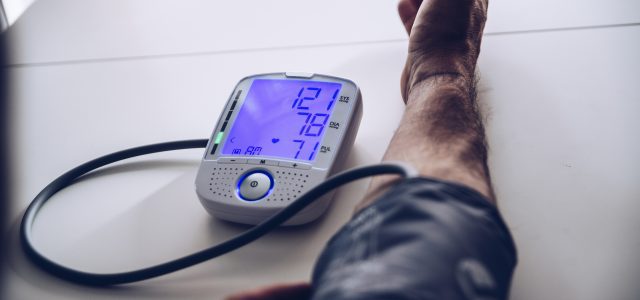The human body is full of hormones. They’re the sophisticated message system that your body has in place so that all of your different organs and systems can communicate properly. Most people know about hormones in the context of their reproductive health– estrogen, testosterone, and other names will probably sound familiar to you. However, there are far more hormones at work in your body that can be helpful to learn about! Ghrelin is one that you might or might not be familiar with, but you feel its effects every single day. It’s the hunger hormone! Let’s take a closer look at how ghrelin works inside your body.
What is Ghrelin?
Ghrelin is a hormone produced in your body that mainly affects your digestive system. Unlike neurohormones, which work in your brain, or sex hormones, which work in your reproductive system but have jobs all over the body, ghrelin is a hormone that’s pretty directly focused on your hunger, digestion, and eating habits.
What Does Ghrelin Do?
Ghrelin is called the “hunger hormone” because its main function is to do just that– make you hungry! It’s what gives your body feelings of hunger and creates the drive to eat and seek out food. In prehistoric humans, ghrelin was what drew you out of your safe, protected dwelling to hunt and seek out sustenance. In modern times, the only places ghrelin is likely to drive you are to the fridge or the grocery store. However, the function is the same. The human body needs fuel, and ghrelin is what makes you seek it out.
Ghrelin works in tandem with another hormone called leptin. One of leptin’s main functions is to make you feel full, so when you eat, your ghrelin levels go down and your leptin levels come up, letting you know that it’s time to stop eating for now. After a meal, your leptin levels gradually come down again as your ghrelin levels come up, increasing your feelings of hunger the longer you go without eating.
Ghrelin also plays a small role in your sleep/wake cycle, or circadian rhythm. Ever had trouble sleeping when you had a light dinner and are really hungry, or when you’ve eaten way too much before bed? Blame ghrelin for that. It also has to do with your reward-seeking system, your taste sensation, and the way you metabolize food. If you’ve ever been on a diet, you know the feeling of ghrelin making it hard to stick to that low-calorie plan!
Where is Ghrelin Made?
Ghrelin is produced in your digestive system, mostly in your stomach. An empty stomach is what triggers the production of this hormone. Once it enters your bloodstream and makes your way around your body, ghrelin eventually finds its way into your hypothalamus, the part of the brain that helps to control and regulate your appetite. That’s where it works to trigger feelings of hunger and that thought of “it’s time to eat something!”
What Causes High Ghrelin?
Ghrelin levels are found to be high in people who follow restrictive diets for one reason or another. People who suffer from eating disorders like anorexia tend to have high ghrelin, as do people who are frequently on yo-yo or fad diets. High ghrelin is also sometimes found in people who restrict their diets for health reasons, like those with celiac disease or inflammatory bowel disease.
What Causes Low Ghrelin?
While it might sound counterintuitive, people who struggle with obesity often have low ghrelin levels. Scientists are still working to understand this, but one theory is that overweight or obese people are more sensitive to ghrelin, and can feel its hunger-causing effects even at lower levels. Low ghrelin is also associated with conditions like chronic gastritis, irritable bowel syndrome, functional dyspepsia, and infections like H. Pylori.
How Does Ghrelin Affect Me?
For the most part, your ghrelin levels are something that naturally fluctuates with your diet and eating schedule. If you’re trying to lose weight, however, you probably feel like you have a pretty antagonistic relationship with your hunger, and so, by association, your ghrelin hormone. Try to think of it this way– in this day and age where we have access to more food than we can possibly eat, ghrelin may seem like a simple annoyance, but in the early days of humanity, ghrelin was what helped us protect ourselves from starving. It helped humans maintain healthy fat levels that would sustain them through times of scarcity.
If you have abnormally high or low ghrelin levels, there’s probably an underlying cause like a digestive disorder that should be treated by a specialist. However, if you’re otherwise healthy with no additional symptoms but you’re struggling with your feelings of hunger, it’s likely that you’re just feeling the effects of ghrelin doing its job and trying to keep you fed.
You can help to keep your ghrelin levels more balanced and manage your hunger by eating a healthy diet full of satiating foods like protein, fats, and healthy carbs, as well as adding in high-volume foods like vegetables. Try to get an adequate amount of sleep and stay hydrated as well– these things can help to regulate your appetite!
Ghrelin and your digestive system don’t exist in a vacuum within your body, and all of your hormones and body systems are connected. Imbalances in your sex hormones have the power to affect your appetite, so if you’re struggling with too much or not enough hunger along with other symptoms, seeing the hormonal specialists at Renewed Vitality might help you! Talk to our team today to learn more.





